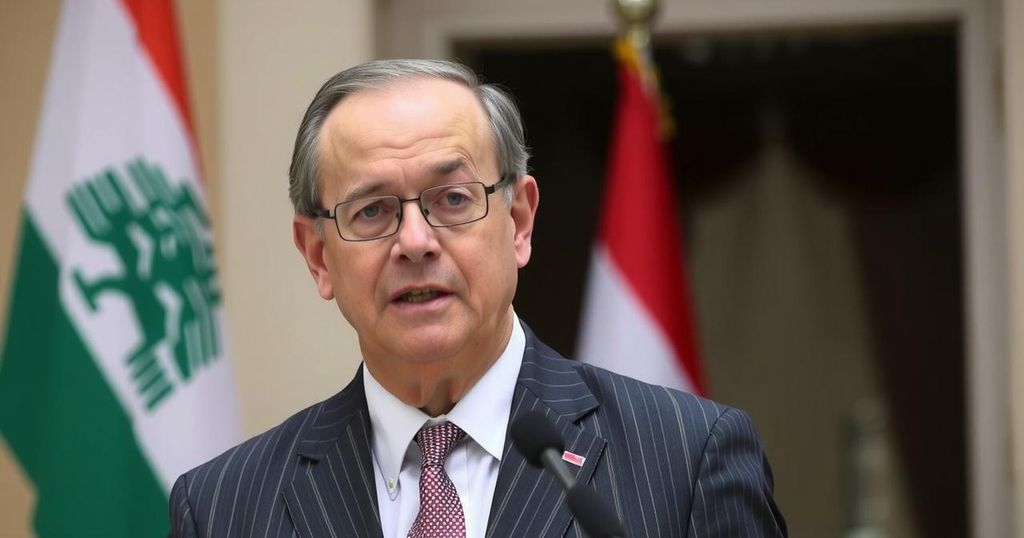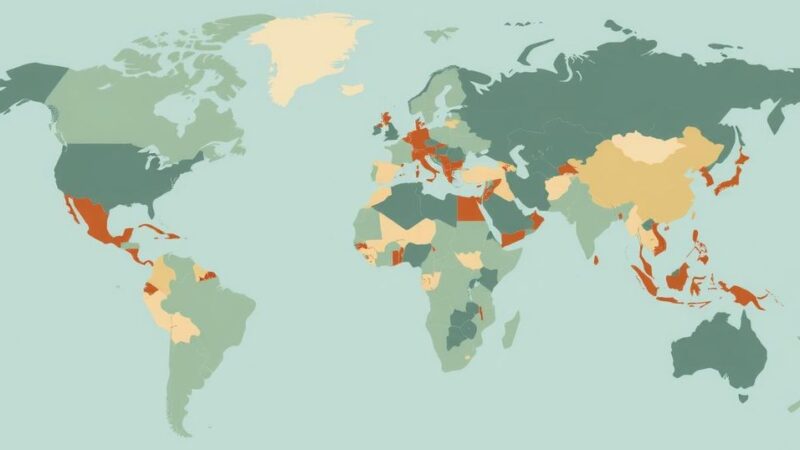Lebanon’s Prime Minister Najib Mikati is set to visit Syria for the first time since the HTS takeover. This follows new entry rules for Lebanese citizens and clashes at the border. Mikati’s office discussed these issues with Syrian leader Ahmed al-Sharaa. Concurrently, the Lebanese army has begun deployments deeper into southern Lebanon as Israeli troops withdraw under a ceasefire agreement.
The Prime Minister of Lebanon, Najib Mikati, is scheduled to visit Syria, marking the first such visit following the recent takeover by Hayat Tahrir al-Sham (HTS) in Syria. Information Minister Ziad Makary confirmed the impending visit during a press briefing, citing the need to address bilateral relations amid escalating tensions along the border. The announcement follows Syria’s introduction of stricter entry regulations for Lebanese citizens, which now mandate a visa for entry, a shift from the previous policy that allowed entry with just a passport or ID card. This change was initiated after a recent border clash that left five Lebanese soldiers injured.
In communication between ministers, Aubin Sharaa, the de facto leader of Syria, is reported to have extended an invitation for official talks. The relationship between Lebanon and Syria has been contentious, particularly due to Hezbollah’s involvement in the Syrian civil war alongside Assad’s regime. Despite differing views among Lebanese politicians regarding ties with Damascus, recent statements from Sharaa indicate a commitment to respecting Lebanon’s sovereignty.
Additionally, developments on the ground involve the Lebanese army increasing its presence in the southern regions of the country, coinciding with a withdrawal of Israeli forces under a US and France brokered ceasefire. The Lebanese army is now deploying deeper into towns near the Israeli border as part of this cessation of hostilities, which aims to stabilize the situation following a period of severe cross-border conflict. The ceasefire plan stipulates the demobilization of Hezbollah forces, with a focus on maintaining peace in the affected areas after extensive casualties on both sides during the fighting.
The geopolitical context surrounding Lebanese Prime Minister Najib Mikati’s upcoming visit to Syria is steeped in historical tensions related to the Syrian civil war and Lebanon’s internal politics. Following a significant shift in power dynamics with the recent advances by HTS in Syria, Lebanon is reassessing its diplomatic approach toward its neighbor. The increased violence at the border has prompted Lebanon to solidify its military stance, while internal divisions among Lebanese politicians complicate the matter. The Lebanese army’s movements coincide with a phased withdrawal of Israeli forces, following a ceasefire agreement intended to conclude the ongoing hostilities between Hezbollah and Israel.
The anticipated visit of Prime Minister Najib Mikati to Syria represents a critical moment in Lebanese-Syrian relations amidst heightened border tensions. As Lebanon grapples with changing dynamics stemming from shifts in Syrian governance and new entry restrictions placed on its citizens, the government must navigate both internal dissent and regional complexities. The ongoing military maneuvers of the Lebanese army signal a proactive response to external threats while aiming to uphold national sovereignty in a fractious geopolitical landscape.
Original Source: www.newarab.com






